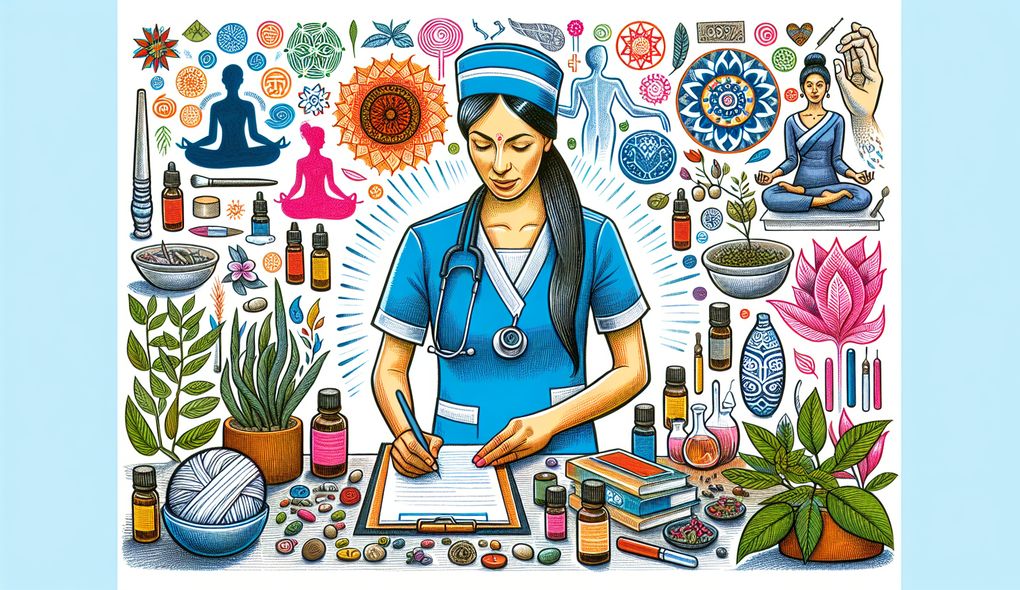Tell us about a time when you had to make a difficult decision regarding a patient's treatment plan. How did you approach the situation?
INTERMEDIATE LEVEL

Sample answer to the question:
There was a time when I had to make a difficult decision regarding a patient's treatment plan. The patient was experiencing chronic pain and had tried multiple conventional treatment options without success. I approached the situation by conducting a thorough assessment of the patient's overall health and exploring alternative therapies that could potentially help alleviate the pain. After consulting with the patient and considering their preferences and goals, I recommended a combination of acupuncture and herbal medicine. This decision was based on my knowledge and certification in holistic nursing. I closely monitored the patient's progress and adjusted the treatment plan as needed. Ultimately, the patient experienced significant pain relief and improved quality of life.
Here is a more solid answer:
During my time as a Holistic Nurse Practitioner, I encountered a challenging situation where I had to make a difficult decision regarding a patient's treatment plan. The patient was suffering from a chronic condition and conventional medical interventions were not providing adequate relief. To approach this situation, I conducted a comprehensive clinical assessment, taking into account the physical, emotional, and social factors affecting the patient's health. I also consulted with other healthcare professionals to gather different perspectives on the best course of action. Drawing upon my extensive knowledge in holistic health practices, I developed a patient-centered care plan that integrated complementary therapies such as acupuncture, massage therapy, and herbal medicine. I educated the patient about the potential benefits and risks of these therapies and encouraged their active participation in the decision-making process. Throughout the treatment, I closely monitored the patient's progress and adjusted the plan accordingly to ensure optimal outcomes. This decision required interdisciplinary collaboration, as I coordinated with other healthcare providers to ensure holistic, integrated care. As a result, the patient experienced significant improvement in their condition and expressed gratitude for the personalized and comprehensive approach to their treatment.
Why is this a more solid answer?
The solid answer provides a more comprehensive response to the question, including specific details about the clinical assessment, integration of complementary therapies, collaboration with other healthcare professionals, and the patient's positive outcome. However, it could still benefit from further elaboration on the candidate's ability to educate and motivate patients and their adaptability to new healthcare trends and regulations.
An example of a exceptional answer:
Let me share a situation where I had to make a difficult decision regarding a patient's treatment plan that required applying my skills and expertise as a Holistic Nurse Practitioner. I was working with a patient who had been diagnosed with a complex chronic condition. After extensive clinical assessment, including physical and emotional evaluations, it became evident that conventional medical interventions were not effectively managing the patient's symptoms and improving their quality of life. To approach this situation, I engaged in interdisciplinary collaboration and sought the input of the patient's primary care physician, specialists, and other holistic practitioners on the healthcare team. Together, we discussed the patient's goals, preferences, and potential alternative therapies that could be integrated into their treatment plan. Taking into account the patient's cultural background and beliefs, I devised a comprehensive care plan centered around holistic health practices. I explained the rationale, benefits, and risks of different therapies to the patient in a compassionate and empathetic manner, empowering them to make informed decisions about their healthcare. We decided to incorporate acupuncture, aromatherapy, and nutritional counseling into their treatment regimen. Throughout the process, I maintained open and transparent communication with the patient, carefully monitoring their progress and addressing any concerns they had. I also provided educational materials and resources to support their understanding of the treatment plan and educated them about self-care techniques to enhance their overall well-being. The patient experienced remarkable improvement in their symptoms, reporting reduced pain levels, increased energy, and improved emotional well-being. This success not only validated the effectiveness of implementing complementary therapies but also highlighted the significance of cultural competence and patient empowerment in holistic care.
Why is this an exceptional answer?
The exceptional answer provides a detailed and comprehensive response to the question, demonstrating the candidate's expertise in clinical assessment, interdisciplinary collaboration, patient education, cultural competence, and adaptability to new healthcare trends and regulations. The answer includes specific examples of the alternative therapies utilized and their impact on the patient's well-being. It also emphasizes the importance of open communication and patient empowerment in holistic care.
How to prepare for this question:
- Familiarize yourself with various complementary and alternative therapies commonly used in holistic nursing practice.
- Reflect on past experiences where you had to make difficult decisions regarding patients' treatment plans and evaluate the outcomes to identify key learnings.
- Stay updated on current research, trends, and regulations related to holistic health practices.
- Develop strong communication and interpersonal skills to effectively collaborate with interdisciplinary healthcare teams.
- Practice explaining complex medical information in clear and understandable terms to patients.
What are interviewers evaluating with this question?
- Clinical assessment and patient care planning
- Knowledge of holistic health practices
- Proficiency in implementing complementary therapies
- Ability to educate and motivate patients
- Interdisciplinary collaboration

